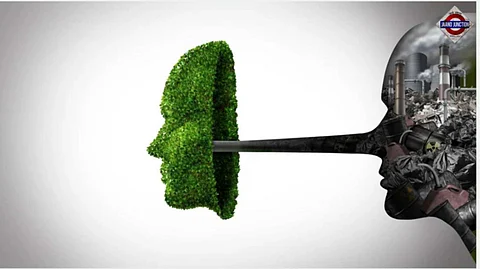

In recent years, sustainability has become a significant selling point for businesses across various industries. Companies in fashion, food, and more now highlight their commitment to the environment through eco-friendly labels and green packaging. While this trend seems promising, many claims do not hold up under scrutiny.
This deceptive practice, known as ‘greenwashing, ’ occurs when companies portray an image of environmental responsibility without genuine action. As demand for ethical products increases, brands may be tempted to appear greener than they truly are.
H&M launched its Conscious Collection in 2010 to provide sustainable fashion options using organic cotton and recycled polyester. However, in 2022, the Netherlands Authority for Consumers and Markets (ACM) raised concerns over the use of terms like "Conscious," stating they lacked clear explanations of their environmental impact. In response, H&M agreed to remove these claims and promised better transparency.
Additionally, reports revealed that the Conscious Collection contained a higher proportion of synthetic, fossil-fuel-based fibres than expected, leading to scepticism about its true sustainability. A related class-action lawsuit in the U.S. was dismissed in 2023, with the court ruling that H&M’s statements were not misleading and that sufficient information had been provided. Although dismissed, the lawsuit itself highlights public concerns about whether H&M’s green claims are accurate or just marketing. This situation underscores the challenges brands face in defining genuine sustainability and the need for clearer standards
Nestlé aims to make 100% of its packaging recyclable or reusable by 2025 and reduce its use of virgin plastics. The company focuses on integrating recycled materials and developing eco-friendly solutions.
Despite this commitment, Nestlé has faced criticism for its slow progress and the transparency of its sustainability claims. Environmental groups, such as Greenpeace, point out that a significant portion of its packaging still relies on single-use plastics. Furthermore, assessments from Break Free From Plastic indicate that many products contain minimal post-consumer recycled content, raising concerns about the true effectiveness of these initiatives. This highlights the challenges large corporations face in achieving sustainability goals and the need for more accountability in their environmental practices.
In 2015, Volkswagen came under fire when it was revealed that the company used “defeat devices” in millions of diesel vehicles. This software allowed cars to pass emissions tests while emitting nitrogen oxides well above legal limits in real-world driving. Marketed as “Clean Diesel,” these vehicles misled consumers into thinking they were environmentally friendly.
The scandal resulted in billions in fines, lawsuits, and recalls, tarnishing Volkswagen's reputation. It highlighted issues of greenwashing and corporate accountability, underscoring the need for stricter environmental regulations and prompting consumers to scrutinise corporate claims.
When environmental promises are used as tools for profit, the line between genuine progress and polished deception grows dangerously thin; one can’t help but ask:
If a company can sell pollution wrapped in the language of sustainability, how do we as consumers learn to tell the difference?
